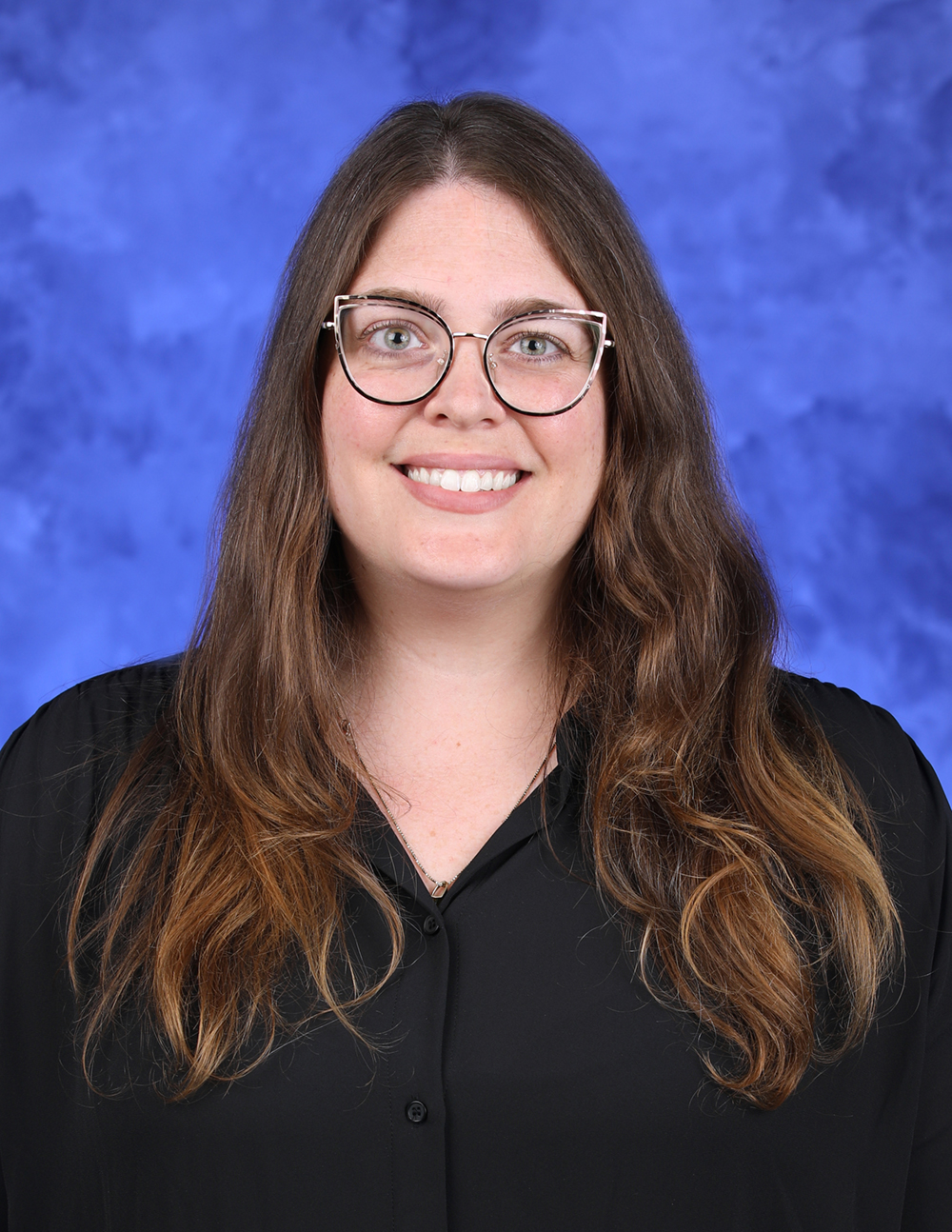Jump to topic
Search
Program Details
The Child and Adolescent Psychiatry Fellowship within the Department of Psychiatry and Behavioral Health provides fellows with a breadth of training experiences and research opportunities in child and adolescent psychiatry.
- Applications are accepted in any year of training after the PGY-3 year.
- The program, in an academic center, ensures the highest-quality didactic programs, clinical programs and research training, all focused on training the next generation of child psychiatrists.
- The program’s interdisciplinary approach to teaching, family-centered clinical approach and strong research base foster an atmosphere of intellectual stimulation and the highest standards of clinical care.
Penn State Health Milton S. Hershey Medical Center fellows encounter vast cultural diversity, as the medical center serves many Amish and Mennonite populations, large farming communities, the suburbs surrounding the state capital and a number of cities with significant immigrant communities, including Harrisburg, Lancaster, Reading and York.
The heart of the training program is a two-year integrated didactic curriculum that covers a variety of topics in detail. These topics include:
- Child development
- Developmental psychopathology
- Pediatric psychopharmacology
- Psychotherapies, including family therapy and cognitive behavioral therapy (CBT)
Extended seminars are held on a wide range of additional topics, such as administration in child psychiatry, pediatric neuropsychiatry, neuroscience and child advocacy.
Fellows participate in many regular case conferences during their training period. Dedicated and protected didactic time is provided to the fellows, in which they will gain mastery over biological approaches to therapy, as well as grounding in the fundamentals of several approaches to child and family psychotherapy.
Didactics emphasize how to critically emphasize the research literature and the basics of research methodology and design. Monthly journal clubs are led by faculty and fellows, focusing on the most current and relevant literature. In addition to supervision in all clinics, all fellows are assigned a mentor for both years.
These programs take place in a supportive, collaborative atmosphere where research trials and clinical care occurs under one roof, allowing trainees to easily experience all aspects of academic psychiatry in one setting. Faculty and fellows work together for the clinical benefit of the patients. Fellows work with the faculty to continually modify the training program to enhance the fellow’s education. To foster the principles of team-based care, several training experiences occur jointly with the department’s APA-approved Psychology Internship.
Fellows benefit from the contained size of the program, which allows for close supervision and mentoring by faculty in research and clinical practice. Learn more about life in Hershey, Pa., here.
Learn More about the Fellowship
Message from the Program Director
Penn State Health Children’s Hospital’s accredited two-year fellowship training program in child psychiatry is located in a scenic setting that encompasses rural, urban and suburban communities. We serve a large, diverse patient population drawn from more than 12 counties in southeastern and central Pennsylvania. All social classes, racial and ethnic backgrounds are represented.
The heart of our training program is a 40-hour-per-week, two-year integrated didactic curriculum that covers a variety of topics in detail.
Monthly journal clubs and case conferences encourage trainees to develop their critical thinking skills while keeping them up-to-date with the current evidence based practices in psychiatry.
In addition to the scheduled rotations, fellows have a full month of elective time during the second year of training, which they can use to pursue research or to enroll in a number of other clinical electives or other scholarly activities. Trainees are encouraged to design their own elective rotation targeting their specific area of interest in child psychiatry.
The Child and Adolescent Psychiatry Fellowship offers innumerable opportunities in scholarly activities and research. There are departmental and institutional research days, in which many fellows participate and go on to present their work at an array of national meetings and publish in highly regarded peer-reviewed journals.
I look forward to meeting you in person and introducing you to the endless clinical and scholarly opportunities in our program.
Fauzia Mahr, MD
Director, Child and Adolescent Psychiatry Fellowship Training Program
Professor of Psychiatry and Pediatrics
Vice Chief, Division of Child and Adolescent Psychiatry
Medical Director of Eating Disorder Program
Practice Site Medical Director, Penn State Medical Group Briarcrest
Message from the Director of Child and Adolescent Psychiatry
As division director of child and adolescent psychiatry, I would like to thank you for your interest in our fellowship. The training program is tightly woven into all aspects of our clinical and research efforts to ensure that trainees acquire the knowledge, acumen and skills necessary to practice in our ever-evolving field.
The program has a strong foundation with approximately 20 faculty across a variety of clinical settings that provide exposure to a wide breadth of training experiences. Having migrated here from a large metropolitan research center, I can personally attest that Penn State Health Milton S. Hershey Medical Center and the surrounding area combine the resources of a large city with the warmth and accessibility of a small town. I have found it be an excellent place to grow a family and a career at the same time.
I hope that you will visit to decide for yourself.
James G. Waxmonsky, MD
Vice Chair, Children’s Services
Professor of Psychiatry
Director, Division of Child and Adolescent Psychiatry
Penn State Health Milton S. Hershey Medical Center
Penn State College of Medicine
Adjunct Associate Professor of Psychiatry
Herbert Wertheim College of Medicine
Florida International University
General Application Information
All applications must be submitted through ERAS. The program either participates in the National Residency Matching Program (NRMP) for child and adolescent fellowship or offers prematch for all positions.
ERAS opens for applications the first week of July, and the application review process begins mid-July, so applicants are encouraged to apply early.
Eligibility
Qualified candidates will be:
- U.S. citizens, permanent residents or J-1 visa holders (no additional visa types are sponsored)
- Board-eligible or board-certified in pediatrics
- Pennsylvania medical training license eligible
Required Supporting Documents
The following documents should be uploaded to ERAS for review:
- Completed ERAS application, including current photograph
- Personal statement
- Curriculum vitae
- Board scores: USMLE Step 1 and Step 2 are required for MD applicants; USMLE Step 3 is required for MD applicants PGY-3 or above; COMLEX scores are required for DO applicants
- Valid ECFMG certificate (if applicable)
- Dean’s letter from medical school
- Medical school transcripts
- Three reference letters (one letter must be from the current training director, addressing professional integrity and performance; the two additional letters must be from faculty with whom the applicant has worked)
- Letter explaining time gaps if necessary
International students
International medical graduates must hold a currently valid certificate from the Educational Commission for Foreign Medical Graduates (ECFMG) to be considered for the match. J-1 visas are accepted.
Interview Process
Applications will be reviewed once the ERAS application is complete. Qualified applicants are invited for interviews scheduled through the beginning of November.
All applications are considered without regard to race, religion, gender or national origin.
Past Fellow Recommendations
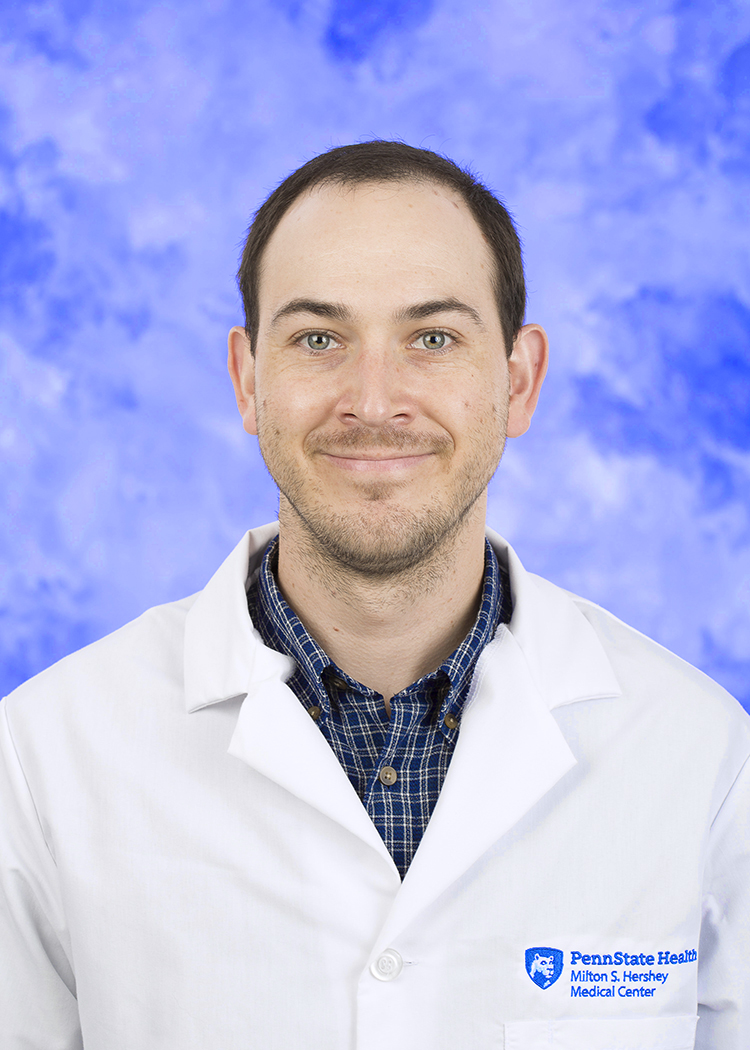 “I greatly cherish the opportunities I had and the time I spent in the Child and Adolescent Psychiatry Fellowship Program at Penn State. The attendings, medical staff and faculty were all fantastic and truly dedicated to ensuring that the fellows received a top-notch educational and clinical experience. In addition to being incredibly well rounded, the program supported and encouraged me to explore particular areas of mental health and medical practice that both interested me and were important to my future career as a physician in the United States Air Force. Working as an attending, I can say without a doubt that this fellowship program gave me the knowledge, tools, confidence, and experience needed for my current career and I would highly recommend it to future prospective applicants.”
“I greatly cherish the opportunities I had and the time I spent in the Child and Adolescent Psychiatry Fellowship Program at Penn State. The attendings, medical staff and faculty were all fantastic and truly dedicated to ensuring that the fellows received a top-notch educational and clinical experience. In addition to being incredibly well rounded, the program supported and encouraged me to explore particular areas of mental health and medical practice that both interested me and were important to my future career as a physician in the United States Air Force. Working as an attending, I can say without a doubt that this fellowship program gave me the knowledge, tools, confidence, and experience needed for my current career and I would highly recommend it to future prospective applicants.”
Matthias Scheele, MD
2023 graduate
Child and Adolescent and Adult Psychiatrist, United States Air Force
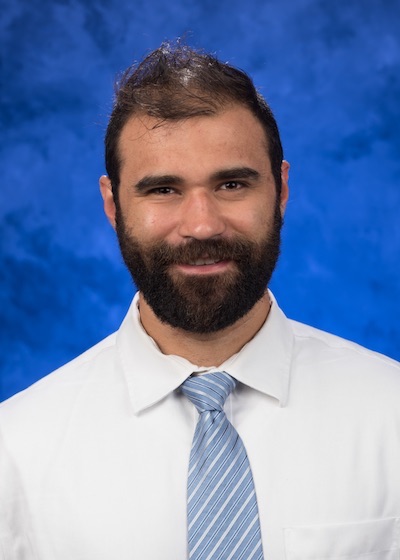 “I consider it a privilege to have trained in the Penn State Child and Adolescent Psychiatry Fellowship. The program faculty are world-class, and the focus on education is paramount. I feel particularly confident about my training in ADHD, autism and eating disorders. The faculty truly care about you and treat you as a colleague, and you develop strong bonds with your co-fellows as well. You will find no better program for emphasizing education, strong connections with your supervisors and positive work-life balance. If I could apply all over again, Penn State’s is the only program I would choose.”
“I consider it a privilege to have trained in the Penn State Child and Adolescent Psychiatry Fellowship. The program faculty are world-class, and the focus on education is paramount. I feel particularly confident about my training in ADHD, autism and eating disorders. The faculty truly care about you and treat you as a colleague, and you develop strong bonds with your co-fellows as well. You will find no better program for emphasizing education, strong connections with your supervisors and positive work-life balance. If I could apply all over again, Penn State’s is the only program I would choose.”
Ryan Richards, MD
2020 graduate
Psychiatry Residency trainee, Penn State Health Milton S. Hershey Medical Center
 “I am very happy with the educational experience during the Child and Adolescent Psychiatry Fellowship at Penn State. Thanks to their training, I am confident in my ability to diagnose and treat a wide range of subspecialties within the psychiatric child/adolescent population. The balance between autonomy and expert supervision helped me to build that confidence. I was especially impressed with the experience I gained within the autistic population, which eased my comfort in treating such complex patients. I highly recommend this program to future applicants.”
“I am very happy with the educational experience during the Child and Adolescent Psychiatry Fellowship at Penn State. Thanks to their training, I am confident in my ability to diagnose and treat a wide range of subspecialties within the psychiatric child/adolescent population. The balance between autonomy and expert supervision helped me to build that confidence. I was especially impressed with the experience I gained within the autistic population, which eased my comfort in treating such complex patients. I highly recommend this program to future applicants.”
Jenilee Generalla, MD
2018 graduate
Child and Adolescent Psychiatrist, University of Toronto
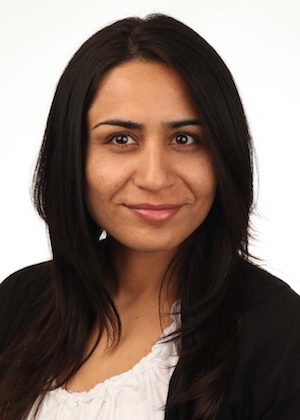 “Fellowship was a fun experience and I feel immense gratitude towards all my teachers and colleagues for their support. Each day provided new opportunities for professional and personal growth, which I really cherish. Program strengths include approachable faculty, good work-life balance and excellent educational experience. I feel confident to treat different psychiatric illnesses after my training at Penn State Health Milton S. Hershey Medical Center. I would highly recommend the Child and Adolescent Psychiatry Fellowship.”
“Fellowship was a fun experience and I feel immense gratitude towards all my teachers and colleagues for their support. Each day provided new opportunities for professional and personal growth, which I really cherish. Program strengths include approachable faculty, good work-life balance and excellent educational experience. I feel confident to treat different psychiatric illnesses after my training at Penn State Health Milton S. Hershey Medical Center. I would highly recommend the Child and Adolescent Psychiatry Fellowship.”
Farhat Siddiqui, MD
2017 graduate
Child and Adolescent Psychiatrist
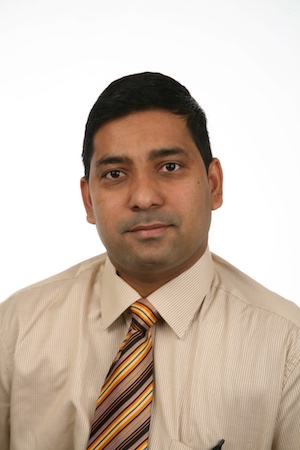 “I consider myself fortunate to have trained in the Child and Adolescent Psychiatry Fellowship at Penn State Health Milton S. Hershey Medical Center. I am extremely thankful for the experience in a well-rounded program with exposure to autism spectrum disorders. The training that I received has inspired me to develop a program for autism and developmental disorders in central Virginia. It has a good blend of exposure to practice of psychiatry in both the university setting and community settings, which in my opinion is one of its major strengths.”
“I consider myself fortunate to have trained in the Child and Adolescent Psychiatry Fellowship at Penn State Health Milton S. Hershey Medical Center. I am extremely thankful for the experience in a well-rounded program with exposure to autism spectrum disorders. The training that I received has inspired me to develop a program for autism and developmental disorders in central Virginia. It has a good blend of exposure to practice of psychiatry in both the university setting and community settings, which in my opinion is one of its major strengths.”
Jitendra Annapareddy, MD
2013 graduate
Medical Director, Center for Autism and Developmental Disorders
Centra Health
Virtual Tour
Penn State Health
Penn State Health is an integrated academic health system serving patients and communities across 15 counties in central Pennsylvania. It employs more than 20,900 people systemwide.
The system includes Penn State Health Milton S. Hershey Medical Center, Penn State Health Children’s Hospital and Penn State Cancer Institute based in Hershey, Pa.; Penn State Health Hampden Medical Center in Enola, Pa.; Penn State Health Holy Spirit Medical Center in Camp Hill, Pa.; Penn State Health Lancaster Medical Center in Lancaster, Pa.; Penn State Health St. Joseph Medical Center in Reading, Pa.; Pennsylvania Psychiatric Institute, a specialty provider of inpatient and outpatient behavioral health services, in Harrisburg, Pa.; and 2,417 physicians and direct care providers at 225 outpatient practices. Additionally, the system jointly operates various healthcare providers, including Penn State Health Rehabilitation Hospital, Hershey Outpatient Surgery Center and Hershey Endoscopy Center.
In 2017, Penn State Health partnered with Highmark Health to facilitate creation of a value-based, community care network in the region.
Penn State Health shares an integrated strategic plan and operations with Penn State College of Medicine, the University’s medical school. With campuses in State College and Hershey, Pa., the College of Medicine boasts a portfolio of more than $150 million in funded research and more than 1,700 students and trainees in medicine, nursing, other health professions and biomedical research.
Learn more about Penn State Health
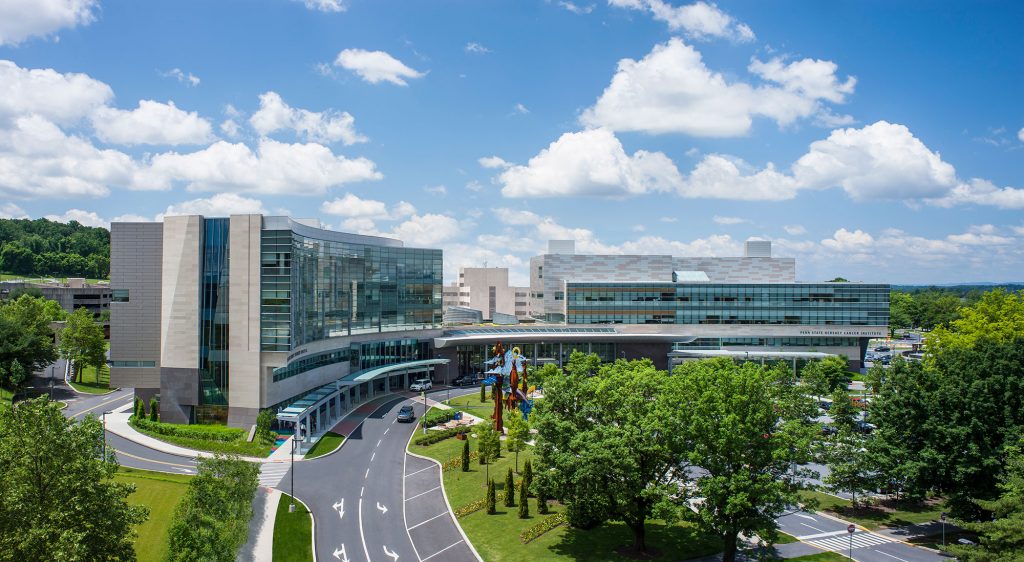
Penn State Health Children’s Hospital (left), Penn State Health Milton S. Hershey Medical Center (center) and Penn State Cancer Institute (right)
Penn State Health Milton S. Hershey Medical Center
500 University Dr., Hershey, Pa., 17033 (Derry Township, Dauphin County)
- The health system’s 611-bed flagship teaching and research hospital
- The only medical facility in Pennsylvania accredited as both an adult and a pediatric Level I (highest-level) trauma center
- Dedicated surgical, neuroscience, cardiovascular, trauma and medical intensive care units
- Accredited Life Lion critical-care transport providing more than 1,100 helicopter and approximately 750 ground ambulance transports per year
- More than 1,300 faculty members and more than 650 residents and fellows
- Approximately 29,000 admissions, 73,000 emergency department visits, 1.1 million outpatient visits and 33,000 surgical procedures annually
- Designated as a Magnet hospital since 2007
Learn more about Milton S. Hershey Medical Center
Penn State Health Children’s Hospital
600 University Dr., Hershey, Pa. 17033 (Derry Township, Dauphin County)
- An eight-story, 263,000-square-foot-facility built in 2013 and expanded in 2020
- 160 licensed pediatric beds, 26-bed pediatric intensive care unit and a 56-bed neonatal intensive care unit
- Level IV (highest-level) neonatal intensive care unit
- Level I quaternary (highest-level) pediatric intensive care unit
- Level I (highest-level) pediatric trauma center designation
- Intermediate care unit
- Dedicated pediatric operating rooms
- More than 150,000 pediatric outpatient visits, 20,000 pediatric emergency room visits, and approximately 5,000 pediatric patient discharges annually
Welcome to Hershey
More About Hershey
Interested in learning more about living and working in Hershey, Pa.? See details here:
Wellness, including emotional, spiritual, social and physical health, is a crucial component to training and to becoming a professional, compassionate and resilient physician. Self-care is a skill which must be continually practiced and reinforced. Penn State College of Medicine and Penn State Health are committed to addressing wellness among residents and fellows, with multiple resources readily available.
Institutional resources
- Visit BeWell – a health program designed to support Penn State Health employees
- See Penn State College of Medicine wellness resources here
- Employee Health Care Concierge and Case Management Service
- Partners in Medicine
Moving to a new city with your family does not have to be stressful. Residency programs have assisted many significant others with finding employment. There is also a GME-Wide Partners in Medicine (PIM) group that offers networking opportunities as well as various social and community oriented activities. - The Doctors Kienle Center for Humanistic Medicine
- Active and easily accessed Office of Professional Mental Health
Graduate medical education resources
Institutional Resources
Penn State Health and Penn State College of Medicine celebrate, embrace and support the diversity of all patients, faculty, staff, students and trainees.
Office for Diversity, Equity and Inclusion
In keeping with this, Penn State Health has an active Office for Diversity, Equity and Inclusion with various programs, networks and resource groups, including:
- Talks and lectures on diversity, equity and inclusion through the Inclusion Academy
- Regular events on topics such as eradicating racism and creating a culture of inclusiveness
- Many Business Employee Resource Groups (BERGs), including:
- Disability Business Employee Resource Group
- Interfaith Business Employee Resource Group
- LGBTQ+ Business Employee Resource Group
- Military and Veterans Business Employee Resource Group
- Multicultural Business Employee Resource Group
- NextGen Business Employee Resource Group
- Black Physician Professional Staff Association – Resource Group
- Hispanic Professional Association
- Asian Physician and Professional Staff Association
- International Workforce Inclusion
- Inclusion Academy
Learn more about the Penn State Health Office for Diversity, Equity and Inclusion
Learn more about the College of Medicine’s Office for Diversity, Equity and Belonging
Office for Culturally Responsive Health Care Education
The vision at Penn State College of Medicine and Penn State Health is to equip learners with the knowledge, skills and attitudes they will need to provide culturally excellent health care and research for an increasingly diverse U.S. population. The Office for Culturally Responsive Health Care Education was formed to help meet that goal.
Learn more about the Office for Culturally Responsive Health Care Education
Office for a Respectful Learning Environment
In addition, the institution does not tolerate discrimination, biases, microaggression, harassment or learner mistreatment of any kind, and any concerns are immediately addressed by the Office for a Respectful Learning Environment.
Learn more about the Office for a Respectful Learning Environment
Network of Under-represented Residents and Fellows
The Network of Under-represented Residents and Fellows (NURF) is a group of diverse residents and fellows representing all specialties. NURF’s goal is to promote cultural diversity in the residency programs through community involvement, mentorship with diverse faculty, professional networking and support for the recruitment of diverse medical students into the residency programs.
NURF is sponsored by the Penn State College of Medicine Graduate Medical Education Office and the Penn State Health Office for Diversity, Equity and Inclusion.
Mailing Address
Penn State Health Children’s Hospital
Child and Adolescent Psychiatry Fellowship
600 University Dr.
Hershey, PA 17033
General Contact Information
Phone: 717-531-4120
Clinical Rotations
During the first year, clinical rotations are varied. The outpatient rotations are devoted to:
- ADHD clinic
- Anxiety clinic
- Autism and intellectual disorders clinic
- Camp Hill prison
- Chronic illness clinic
- Cognitive behavioral therapy (CBT)
- Integrated/collaborative care assessment clinic with pediatrics
- Eating disorder partial hospitalization program
- Mood/trauma/TGD clinic
- Pediatric consultation liaison
- Pediatric neurology clinic
- Scholarly activity
First-year training also includes a six-month rotation at the child inpatient unit of Pennsylvania Psychiatric Institute.
The second year consists of two six-month rotations through various community child psychiatry sites, outpatient clinics and elective rotations. These include:
- ADHD clinic
- Addiction
- Anxiety clinic
- Autism spectrum disorder school/clinics
- Child consultation clinic
- Cognitive behavioral therapy clinic
- Cognitive behavioral therapy group sessions
- Community patrial hospitalization
- Community psychiatry centers
- Electives
- Family therapy
- Forensic child psychiatry clinic
- Longitudinal clinics
- Mood/trauma/TGD clinic
- Neuromodulation
- Neuropsychology
- Parent-child interactive therapy (PCIT)
- River Rock Academy (school rotation)
- Scholarly activity
- Sleep clinic
- Telephonic Psychiatric Services (TiPS)
- Transitional clinic
These rotations occur in urban, suburban and rural centers that are all easily accessible from the Hershey campus. On-site psychiatric supervision is provided at all of these rotations.
Fellows are given one month of elective time. They may chose to take this in December/January or May/June. Fellows can use this time to pursue research or to enroll in a number of other clinical or administrative electives. Electives available include child abuse assessment, pediatric sleep disorders, autism, genetics, eating disorders, forensic psychiatry and multiple research electives.
Fellows are encouraged to design their electives based on their clinical, research and administrative goals after graduation.
Forensic Rotations
Fellows will observe assessments as they are conducted with children and families involved in custody disputes, termination of parental rights cases and juvenile decertification. Following each evaluative session, the fellows will have an opportunity to ask questions, make comments and sometimes participate in court proceedings.
A recent enhancement to the forensic educational experience involves rotating through a local prison system. Trainees will have the opportunity to evaluate, observe peer interactions and behaviors in the correctional facility and discuss their assessment and plan with treatment team members. Fellows will develop knowledge and skills to manage a broad range of psychiatric diagnoses commonly seen in such settings as well as develop appropriate clinical and interpersonal attitudes to provide optimal care to these patients.
River Rock Academy
This is a required rotation at which the second-year fellows will spend 20 percent of their time. Fellows will spend their time at River Rock Academy‘s Spring Grove campus in York County.
River Rock Academy is a Pennsylvania Department of Education-approved private provider for alternative education for students in sixth through 12th grades, an approved licensed academic school for elementary regular education and special education students in first through sixth grades, and a provider of special education for secondary students in sixth through 12th grades.
River Rock Academy is also a Department of Human Services-licensed day treatment program for delinquent and dependent youth 11 to 18 years old in York and Adams counties.
River Rock Academy has eight locations serving the school districts of the central, southcentral and eastern counties of Pennsylvania. Fellows participate in patient evaluations and family and school meetings and develop and present comprehensive management plans to school officials, families and associate support service staff.
Vista School
This rotation is required in the second year of training and consists of spending one half-day per month for four months at The Vista School, an approved private school for children with autism.
The primary clinical activity of this rotation is performing psychiatric evaluations and supervising a medication clinic at the school. Evaluations include interviewing the parents and professional staff for the identified student, as well as extensive classroom observations. Additionally, there is opportunity to participate in the treatment planning process for students’ educational and psychiatric needs. The residents are encouraged to take advantage of the continuing education and training modules offered at the school.
Fellow Honors and Recognitions
Penn State College of Medicine and Penn State Health Milton S. Hershey Medical Center accept ongoing nominations for the Exceptional Moments in Teaching award.
The award, given monthly by the Office for a Respectful Learning Environment, accepts nominations from College of Medicine students who are invited to submit narratives about faculty members, residents, fellows, nurses or any other educators who challenge them and provide an exceptional learning experience. See more about the award here.
Previous nominees from the Child and Adolescent Psychiatry Fellowship are listed here. Click the + next to a nominee name to read their nominator’s comments.
The annual Resident/Fellow Research Day is held each year (with exception of during the COVID-19 pandemic) on and around the Penn State Health Milton S. Hershey Medical Center campus.
The intent of the event is to provide an opportunity for residents and fellows to showcase their research accomplishments to their peers in other clinical departments, as well as their colleagues in the basic sciences.
Learn more about Resident/Fellow Research Day here.
Previous presentations from the Child and Adolescent Psychiatry Fellowship are listed here.
Previous oral and poster presentations from the Child and Adolescent Psychiatry Fellowship are listed here.
A selection of recent peer-reviewed publications with Child and Adolescent Psychiatry Fellowship trainees as authors appears here.
Latest News from Psychiatry and Behavioral Health






